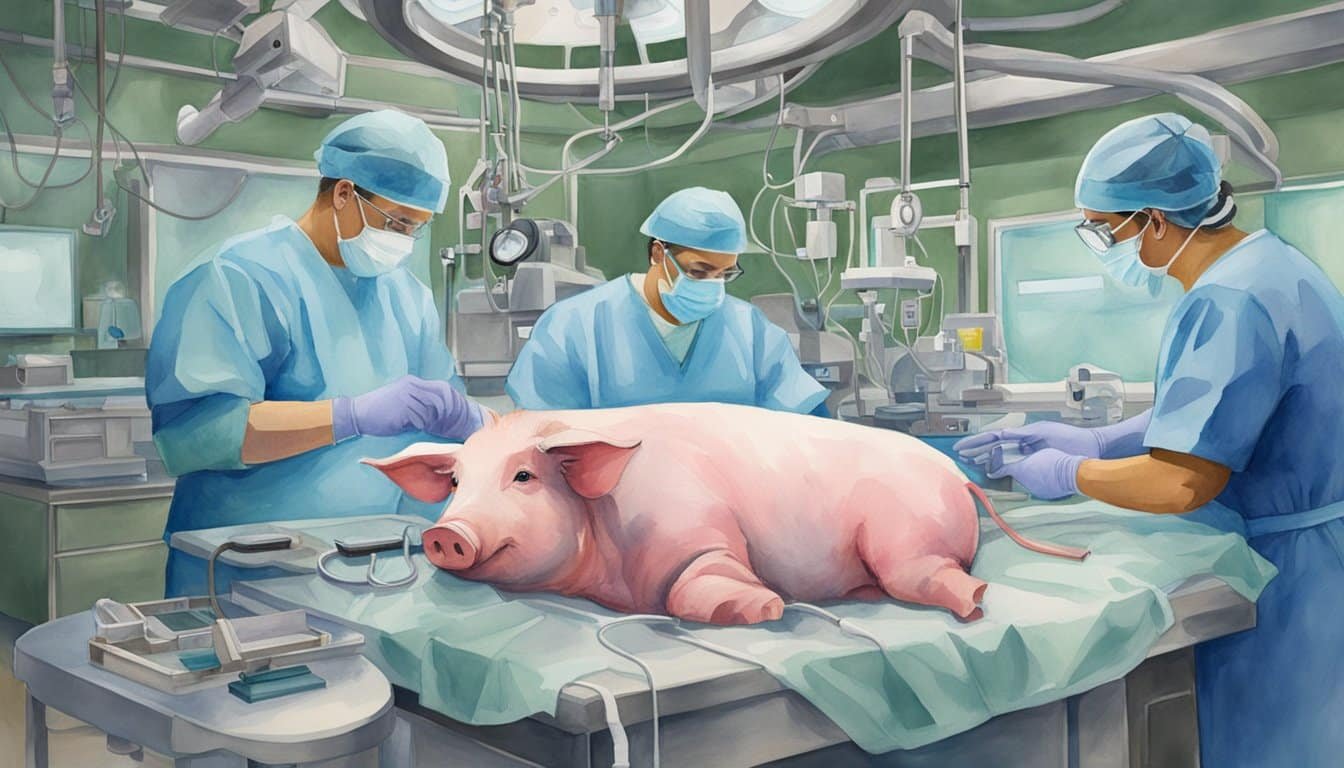Pig Heart Transplant Overview
Transplanting a pig heart into a human may sound like science fiction, yet it’s at the forefront of modern medicine offering hope amidst organ shortages.
The Basics of Xenotransplantation
Xenotransplantation is the process of grafting or transplanting organs or tissues between members of different species. In the context of heart transplants, it involves transplanting pig hearts into humans. This innovative approach proposes an alternative solution to the perennial problem of organ shortage. Pigs are considered suitable donors for several reasons:
- Their heart size and function are similar to those of humans.
- Genetically modified pigs can be bred to reduce the risk of rejection.
Pig Heart Transplants in Healthcare
In healthcare, pig heart transplants have moved from theory to practice, with surgeons performing the procedure under rigorous clinical trials. These procedures signal a revolutionary step in addressing the organ transplant crisis where the demand for organ transplants drastically exceeds supply.
Key points:
- Clinical trials have shown that pig heart transplants can be feasible when the pig is genetically modified to be compatible with the human immune system.
- As of now, these transplants are reserved for patients with no other options and are carried out under strict ethical standards.
Scientific and Medical Advancements

Recent years have seen significant strides in transplant medicine, particularly the field of xenotransplantation where genetic engineering paves the way for pig heart transplants into human patients.
Genetic Modification of Pig Hearts
Genetic modification stands at the core of xenotransplantation success. Biotech companies, such as Revivicor, are at the forefront, producing gene-edited pigs tailored to reduce organ rejection. The pigs’ genetic makeup is altered to remove certain antigens that trigger a strong immune response in humans. This groundbreaking work has been instrumental for experimental surgeries performed by institutions like the University of Maryland Medical Center.
Case Studies and Clinical Outcomes
The case of David Bennett at the University of Maryland School of Medicine marks a milestone in biomedical history. Bennett received a successful transplant with a heart from a genetically modified pig, illustrating the life-saving potential of this technology. While the procedure is experimental, the promising outcomes suggest a new era of hope for patients with terminal heart disease. Clinical outcomes are being closely monitored to understand the long-term implications and refine the approach to immunosuppression and post-operative care.
Ethical, Legal, and Social Implications

With the groundbreaking success of a pig heart transplant performed by the University of Maryland, ethical, legal, and social questions have surfaced. These concerns are pivotal, touching upon the core of medical innovation and human values.
Ethical Considerations in Animal to Human Transplants
Animal to human transplants have sparked a robust debate on ethics. The use of genetically altered pig organs prompts questions about the wellbeing and rights of animals used in medical procedures. While this technology could alleviate the organ shortage crisis, it raises concerns regarding the potential exploitation of animals for human benefit. Moreover, the long-term health implications for recipients, including possible rejection or transmission of pig viruses, remain under scrutiny.
The Impact on Organ Transplant Policies
Legal and social implications of xenotransplantation reflect on current organ transplant policies. The innovation has implications for organ waiting lists and could shift the dynamics of who receives life-altering surgeries. Questions regarding consent and the quality of life post-transplant are paramount, particularly for those with terminal heart disease. Legally, the incorporation of organs like pig heart valves and kidneys into transplant strategies requires careful consideration by the FDA and other regulatory bodies to navigate the terrain between innovation and individuals’ rights.

